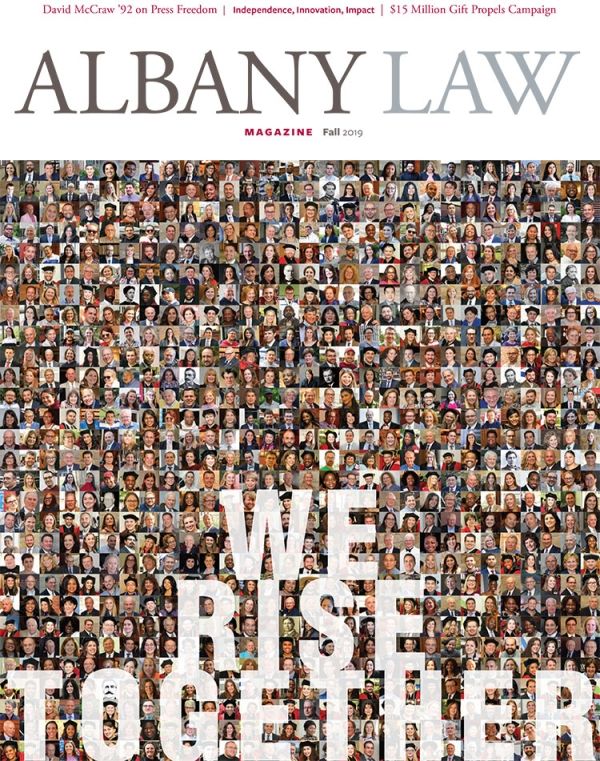Back on Campus, New York Times’ Newsroom Lawyer Holds Court
David McCraw ’92, vice president and deputy general counsel of The New York Times, returned to Albany Law School on March 27 to discuss the themes in his new book, Truth in Our Times: Inside the Fight for Press Freedom in the Age of Alternative Facts.
ON BIAS IN JOURNALISM:
“I do think we have to give facts in context. If someone is saying something that is untrue, we need to point that out. My concern is when that lapses into partisanship, because American journalism, over the last 120 years roughly, has been practiced on the idea that newspapers are not the organs of established political parties—that we should attempt to be an honest broker of information. That’s where I want to go. But that requires context; it does not require he said–she said allegiance.”
ON WHETHER TO RUN A NEWS STORY:
“Our role is to find a way. And the law of this country is so strong in favor of press freedom, you should be able to find a way.”
ON PUBLISHING CLASSIFIED DOCUMENTS:
“This is a novel question of law. Can the president declassify by tweet? There’s no law on that. The president tweeted out about a top-secret program, the arming of Syrian rebels, and we took the position that [the tweet] declassified the program. And we filed a FOIA suit asking the CIA to give us all the documents on the now-declassified program.”

ON THE FREEDOM OF INFORMATION ACT:
“FOIA is broken. It doesn’t really lead to as much transparency as there should be. We feel it’s really important as an organization to sue often, so we do that, because: A, sometimes it leads to documents, almost always it leads to some documents—not always the documents we want, but some documents; B, it puts the government on notice that if you tell us no, we’re not just going to walk away and say, ‘Oh that’s too bad,’ that we will sue you; C, we think we have a chance to create laws that will be more effective. So we keep at it.”
ON SOCIAL MEDIA’S INFLUENCE:
“I think news organizations have to investigate Twitter and Facebook just the way they do government. They are so powerful and so important.”
ON THE GAWKER CASE, JOURNALISM, AND A PERSON’S RIGHT TO PRIVACY:
“There’s only one thing you need to understand about the law of privacy, and that is, if something is newsworthy, the publisher wins. It can violate somebody, it can be very, very intimate, it could intrude on somebody’s privacy, but if you can show newsworthiness, public interest, you win. That’s how the law works.”
PRINT ISSUE
Click for downloadable PDF

